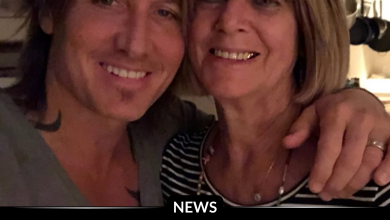The Untold Story of Emilia Clarke’s Health Crisis—How Daenerys Targaryen Helped Her Survive!
OPINION: This article may contain commentary which reflects the author's opinion.
Emilia Clarke’s rise to fame as Daenerys Targaryen in Game of Thrones is one of Hollywood’s most inspiring stories, not just for her career but also for her personal journey through unimaginable health crises. For Clarke, the hit HBO series became more than just a stepping stone to stardom—it became a lifeline during one of the most challenging periods of her life. The show not only played a key role in her recovery but also provided a platform for her to become an advocate for brain injury recovery and mental health.
Health Struggles: A Life-Threatening Battle
Emilia Clarke’s health struggles began in 2011, shortly after filming wrapped on the first season of Game of Thrones. At just 24 years old, she experienced a subarachnoid hemorrhage, a life-threatening stroke caused by bleeding in the space surrounding her brain. The condition required immediate brain surgery, setting the stage for a tumultuous period in her life.
Just two years later, in 2013, Clarke faced another setback when scans revealed that an aneurysm had doubled in size. This necessitated a second, even more invasive surgery, which involved replacing part of her skull with titanium. Despite these dire circumstances, Clarke, with incredible resilience, went on to fully recover and return to the role that would become her lifeblood in more ways than one.
Game of Thrones as a Psychological Anchor
While recovery from such serious surgeries could have led many to take a step back, Clarke’s role in Game of Thrones became her anchor. The demanding schedule and emotionally charged character of Daenerys Targaryen provided a focused, structured environment that helped her push through physical and cognitive challenges, including aphasia and fatigue.
In an interview with Variety, Clarke described the role as her “single point of focus that allowed me to not think about anything scarier than just getting on set.” The sheer physicality and emotional depth of her character were demanding, but for Clarke, this commitment to work helped her keep her mind engaged and distracted from the aftermath of her surgeries. The set became a place where the physical and mental challenges of her health could be momentarily put aside, replaced by the determination to bring Daenerys to life.
Despite her own struggles, Clarke remained steadfast in her role, demonstrating immense strength. Returning to the set for Season 2 of Game of Thrones marked an important step in her recovery. This grueling but structured environment allowed her to regain her footing and push through the worst of her health battles, using work as a form of therapy.
Public Disclosure and Advocacy
In 2019, Clarke took the brave step of publicly sharing her health struggles with the world through a deeply personal essay in The New Yorker. This decision to open up about her life-threatening experiences was made possible by the platform Game of Thrones provided, allowing her to use her fame to raise awareness about brain injuries and recovery. Clarke’s disclosure resonated with many and led to the launch of SameYou, a charity she founded in 2019 that focuses on providing support for brain injury and stroke survivors.
SameYou, which grew out of Clarke’s personal experiences, aims to offer resources and mental health support to those recovering from neurological injuries, particularly in young people. Her openness not only helped normalize the conversation about brain injuries but also highlighted the importance of emotional recovery and mental well-being. Her advocacy work continues to be a powerful testament to her resilience and desire to help others facing similar battles.
A Full Recovery and Career Revival
By 2025, Clarke’s health had fully recovered, and her career was thriving. Her role in Game of Thrones will always remain a defining part of her journey, both professionally and personally. In addition to her ongoing acting career, including her role in Secret Invasion (2023) as part of the Marvel Cinematic Universe, Clarke has become an influential voice in the brain injury recovery community. She continues to reflect on the incredible significance Game of Thrones had in her life, stating that the show’s impact was “incredibly special and incredibly rare,” underscoring how it helped her not only professionally but also in her personal recovery.
Conclusion: Game of Thrones as a Lifeline
Emilia Clarke’s journey through Game of Thrones is a powerful story of survival, resilience, and transformation. While the show undoubtedly made her a global star, it also played an integral role in her recovery from life-threatening health crises, providing her with the psychological support and structure she needed to heal. Her story highlights the unexpected ways in which entertainment and personal health can intersect, offering valuable lessons in perseverance and the power of focus.
Clarke’s experience is not just about overcoming adversity but also about using that adversity to fuel positive change. By embracing her fame and using it to advocate for others, she has not only survived but thrived, showing the world that even in the face of overwhelming challenges, there is always hope for a brighter, stronger future.



